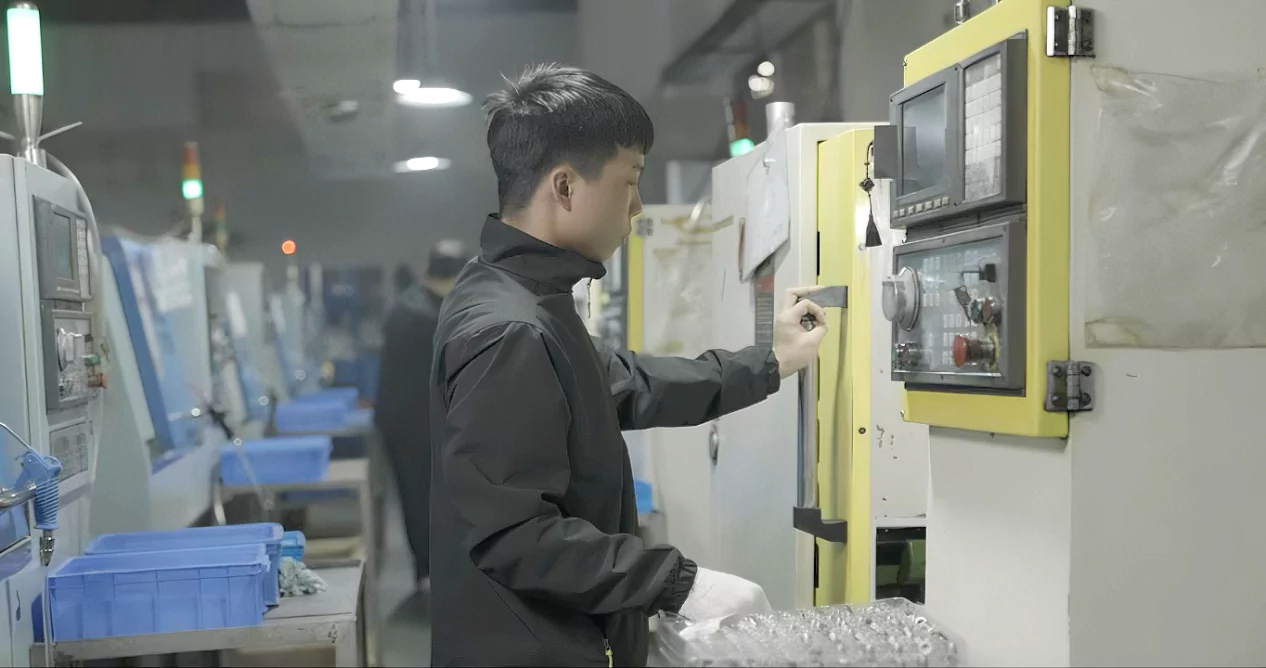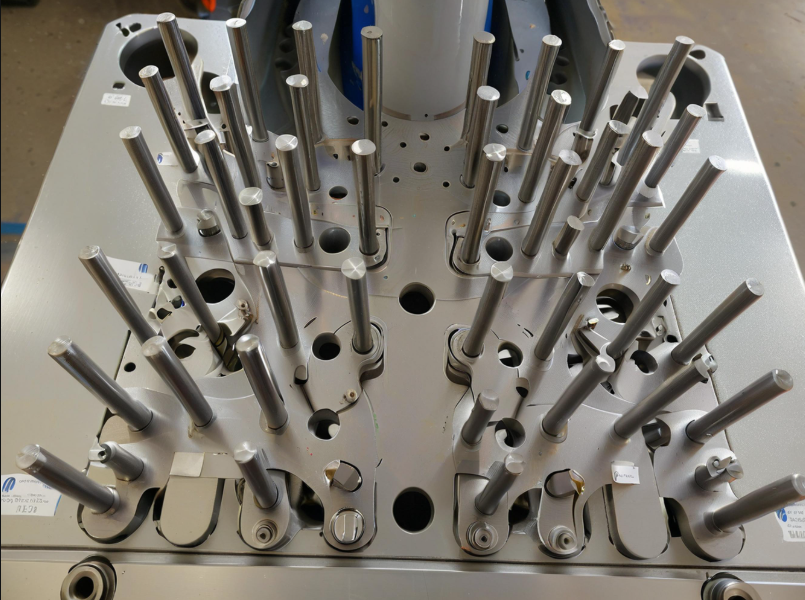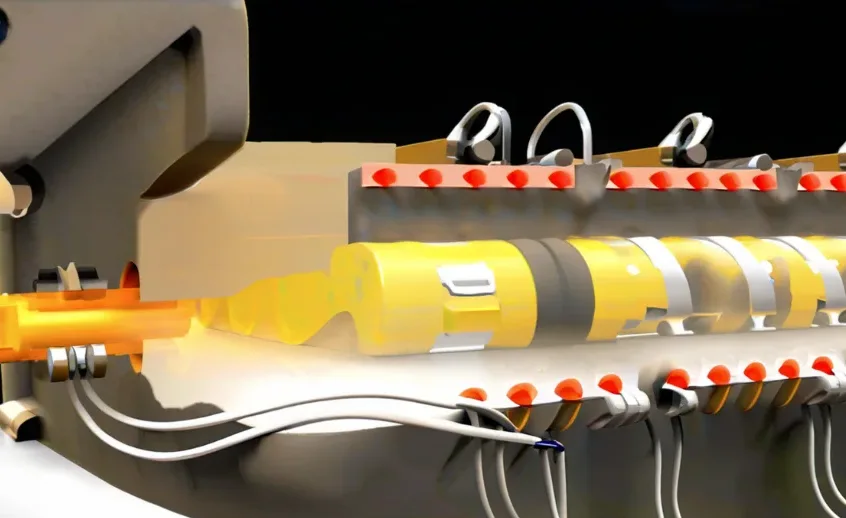In today’s fast-paced manufacturing, choosing a reliable CNC machine shop ensures project success.
For outsourcing CNC machining, a stable, high-quality supplier is crucial, especially in China.
This article explores factors for selecting a CNC shop and the benefits of outsourcing to China.
Why choose an external CNC workshop?
Outsourcing CNC machining instead of manufacturing in-house is about cost savings, efficiency, and quality. Some of the core advantages are listed below:
1. Reduced Production Costs
Building in-house CNC machining requires significant investment in equipment and maintenance, especially for high-end machines.
In contrast, outsourcing allows you to turn this fixed cost into a variable cost by paying directly for specialized services.
2. Reduce management burden
Outsourcing to a professional CNC plant eliminates the need for equipment maintenance, training, and quality control.
Companies can focus on core areas like design and market development to boost overall efficiency.
3. Rapid response to market demand
Outsourcing to a flexible CNC center ensures quick capacity expansion and reliable delivery during market fluctuations.
Primarily during peak periods, an outsourced processing plant can provide flexible capacity adjustments to respond to increased orders quickly.
4. Access to specialized technical support
Many Chinese CNC machine shops have extensive experience in CNC technology and can handle complex design requirements.
By outsourcing, you can get technical support from a team of professionals to enhance the craftsmanship of your products.
Why Outsource Rapid Prototyping (RPM) to China?
China has become one of the global manufacturing centers, especially in the field of CNC machining.
Below are some of the main reasons why you should outsource your Rapid Prototyping to China:
1. Cost Effective
CNC machining factories in China can offer competitive pricing while maintaining quality.
Chinese machining facilities offer quality products at low prices due to low labor costs and strong infrastructure.This is crucial for companies needing rapid prototyping.
2. Abundant Material and Process Options
Chinese CNC fabrication facilities have access to a wide range of material supply channels, from metals and plastics to specialty alloys, and can offer a variety of machining processes.
This gives outsourcing projects greater design flexibility for different prototyping needs.
3. Perfect quality and delivery management
Many CNC factories in China meet international standards, like ISO certification.
They also have strict production and quality systems for consistent quality and timely delivery.
How do you choose the right CNC machine shop in China?
Choosing a CNC plant involves evaluating capacity, equipment, quality control, and customer reviews.
Some of the critical criteria are analyzed in detail below:
1. Reliability, Confidentiality and Security
A reliable machine shop is not only about high production capacity but also high project management, confidentiality, and production security. Specifically:
Reliability: A factory’s track record, previous project experience and stable customer base indicate its reliability.
Knowing the factory’s establishment date, main customers, and cooperation history helps assess its reliability.
Confidentiality: Projects often contain sensitive information such as design drawings and technical details.
Ensure the factory has a strict NDA to protect your intellectual property, especially proprietary technology.
Production safety: A factory with a safety management system prevents production interruptions, ensuring smooth project progress.
2. Production capacity
Production capacity is the key to determining whether a factory can complete its tasks on time.
It involves the type of equipment, the number of production lines, and the skillfulness of the operators.
Production capacity can be examined from the following aspects:
Number and size of equipment: Check the factory’s equipment count and processing capacity to handle fluctuating orders.
Degree of equipment automation: Factories with higher automation are more efficient, have fewer errors, and offer consistent output.
Worker skill level: Experienced technicians improve efficiency, especially in complex projects, impacting product quality and delivery speed.
3. Process Equipment
The advanced degree and types of process equipment determine the precision and complexity of the machining process.
Modern CNC machining equipment includes three-axis, four-axis, and five-axis machines, and different equipment is suitable for various production needs.
For example:
Five-axis CNC machining is suitable for machining complex three-dimensional structures and can realize multi-angle cutting.
Choosing a factory with 5-axis machining capability can ensure high-precision manufacturing of complex parts.
Special process equipment: laser cutting and spark machines for specific material and shape processing needs.
Choosing a factory with the proper process requirements for your project can reduce secondary processing and save costs.
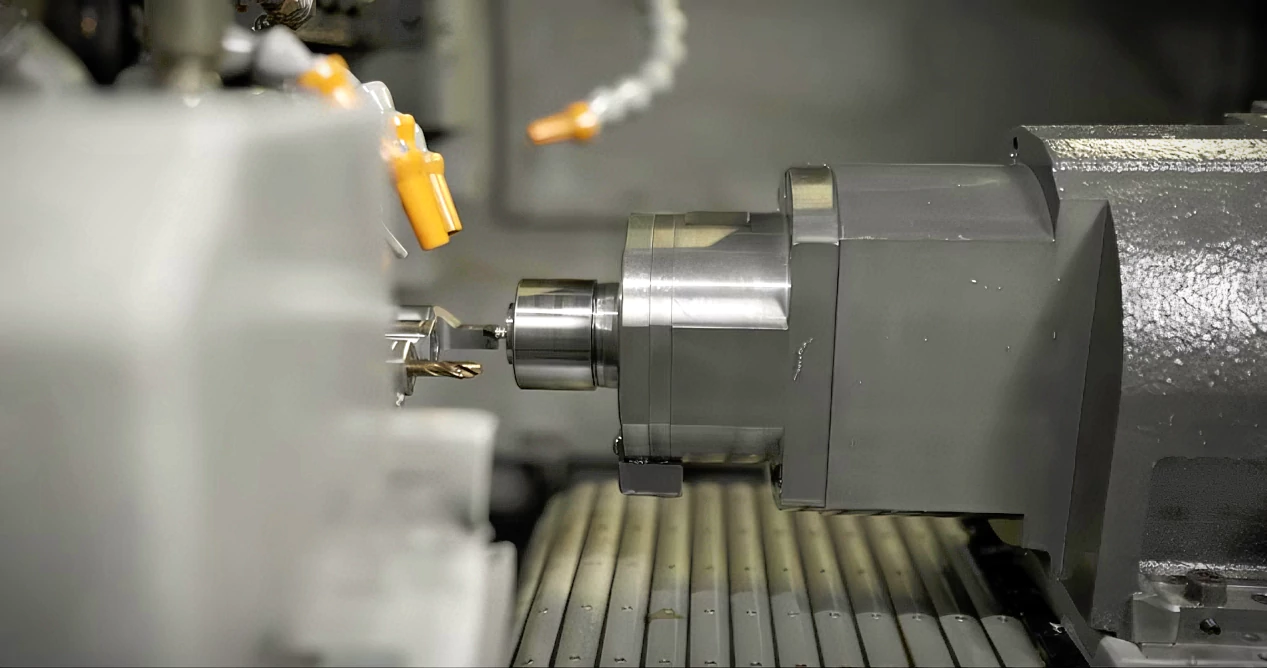
4. Quality Control
Quality control is a critical component in ensuring that products meet standards. A qualified fabricator will have the following quality control processes in place:
Material Entry Inspection: Strict inspection of raw materials entering the production line to ensure compliance with project requirements.
Process quality monitoring: Factories usually set up quality checkpoints during processing to monitor each step in real time.
Final product inspection: Specialized inspection equipment, like CMM, accurately measures the finished product to meet design requirements.
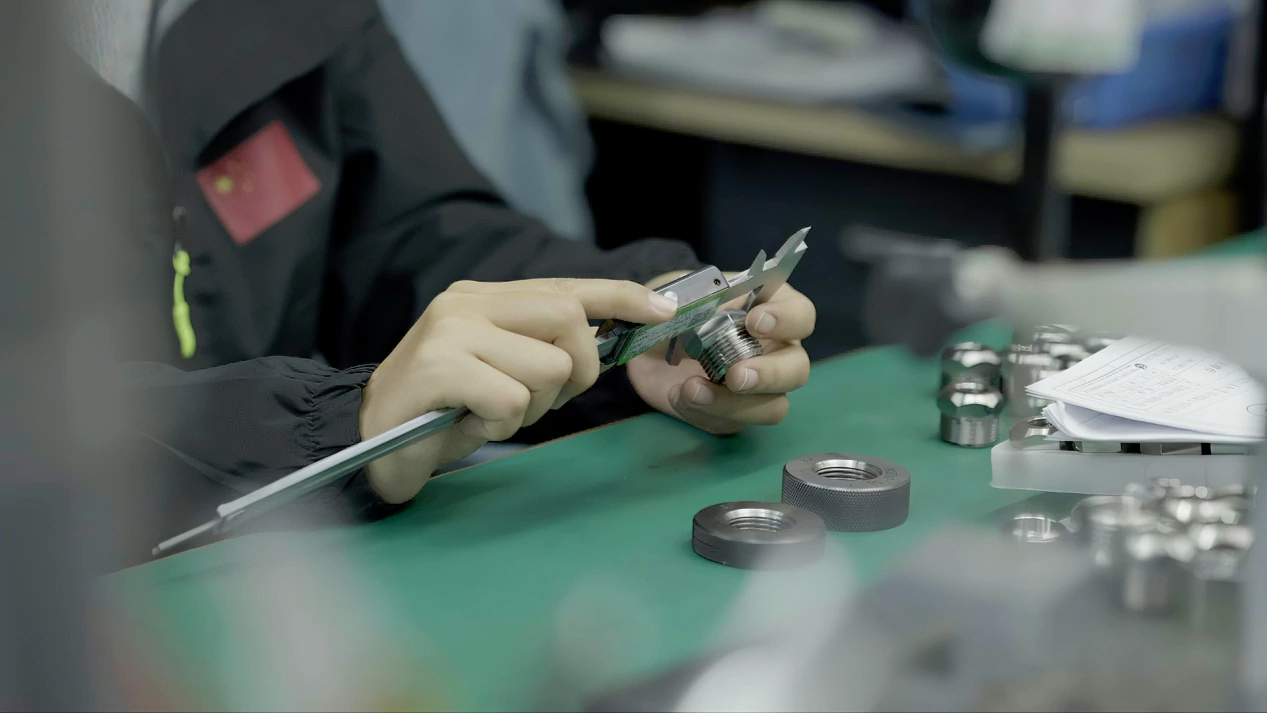
5. Customer feedback
Reviews from customers provide valuable insights into the factory’s performance, such as service quality and timely delivery.
Feedback from customers can be gathered through the following methods:
Online evaluation platforms: International platforms offer evaluations of processing factories, revealing other customers’ cooperation experiences.
Contacting past customers: Contact the factory’s past customers to learn about their cooperation experience, work style, and problem-solving ability.
6. On-time delivery
On-time delivery is the guarantee that the project will go forward as planned.
Examine the factory’s production scheduling and logistics to ensure timely order completion.
Delivery capability can also be assessed through the following aspects:
Production progress tracking: Some factories offer real-time production tracking, allowing customers to easily monitor project status.
Contingency handling capability: whether the factory plans to deal with production problems to guarantee uninterrupted production.
7. Material selection and availability
Different processing projects require different material support.
The ideal processing plant should have a rich material supply chain and solid material deployment capability.
Material selection can be examined from the following points:
Material types: Check if the factory has the materials needed for your project, including metals, plastics, and alloys.
Stable supply: Ensure the materials can reach the factory in time to avoid production delays caused by supply chain breaks.
8. Surface treatment process
Many parts require surface treatment after machining to achieve a more aesthetic appearance or to improve corrosion resistance.
The following are some common surface treatments:
Anodizing: Used to improve the hardness and wear resistance of metal surfaces.
Sandblasting and electroplating: Surface treatments used for different cosmetic effects and durability requirements.
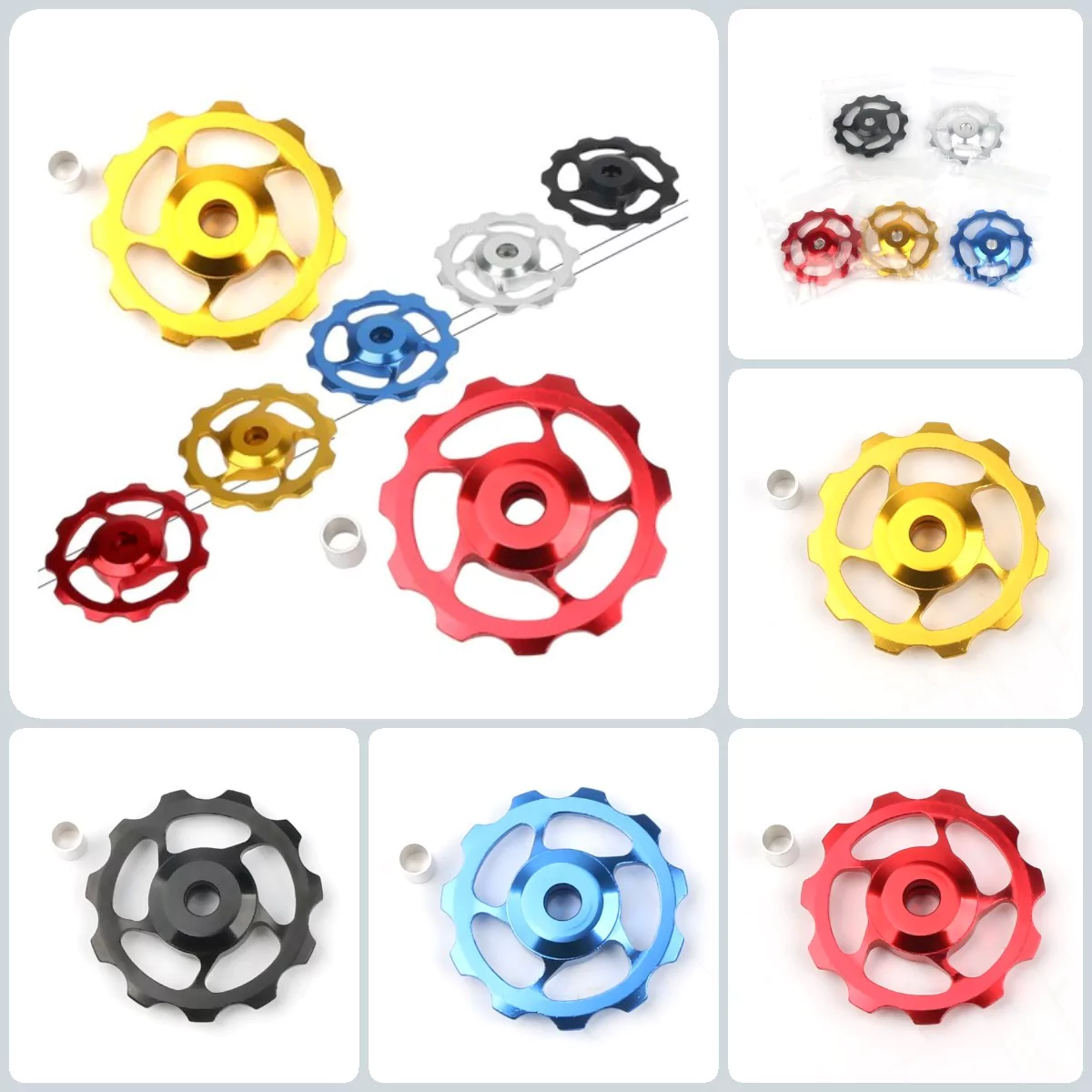
Oxidizing
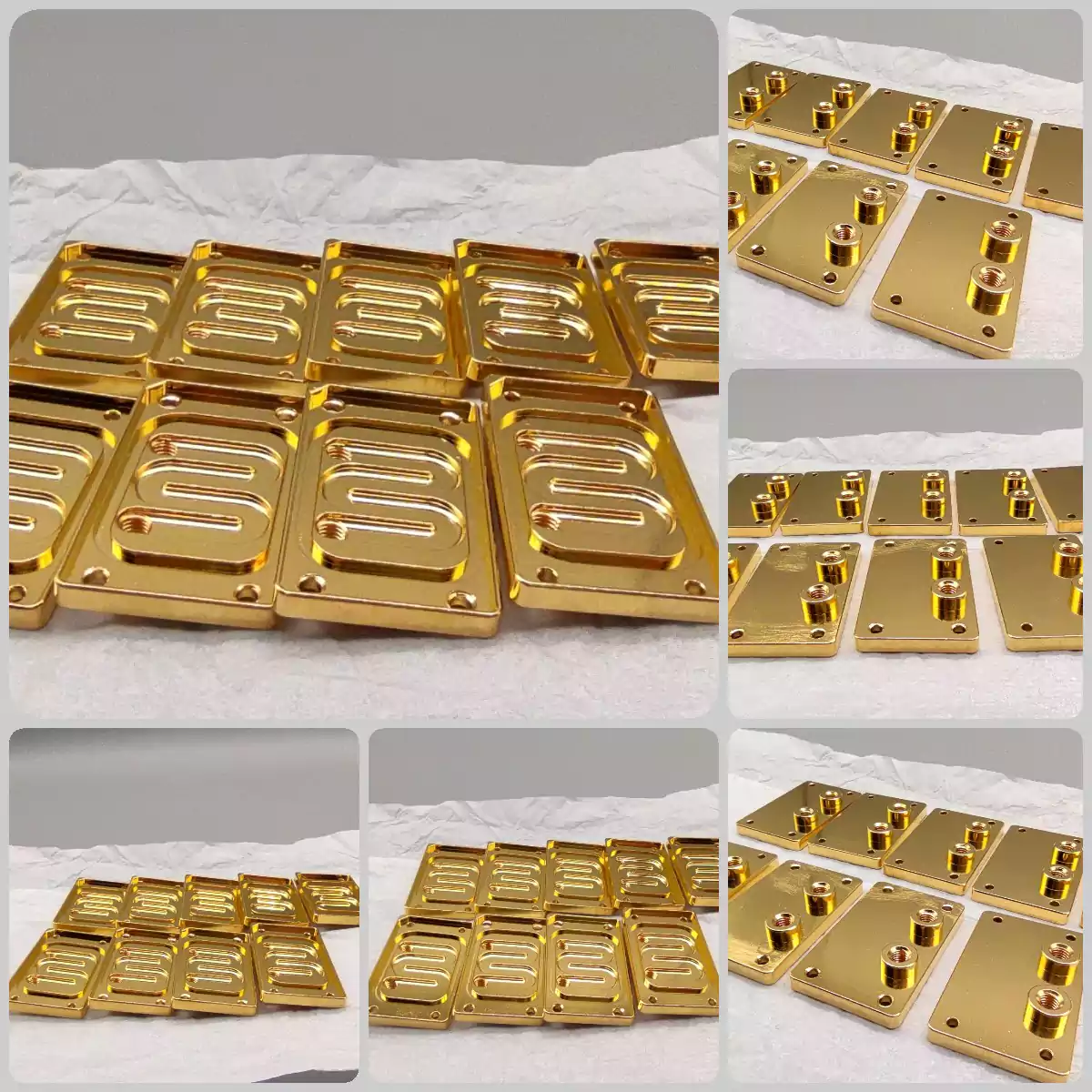
Gold plating
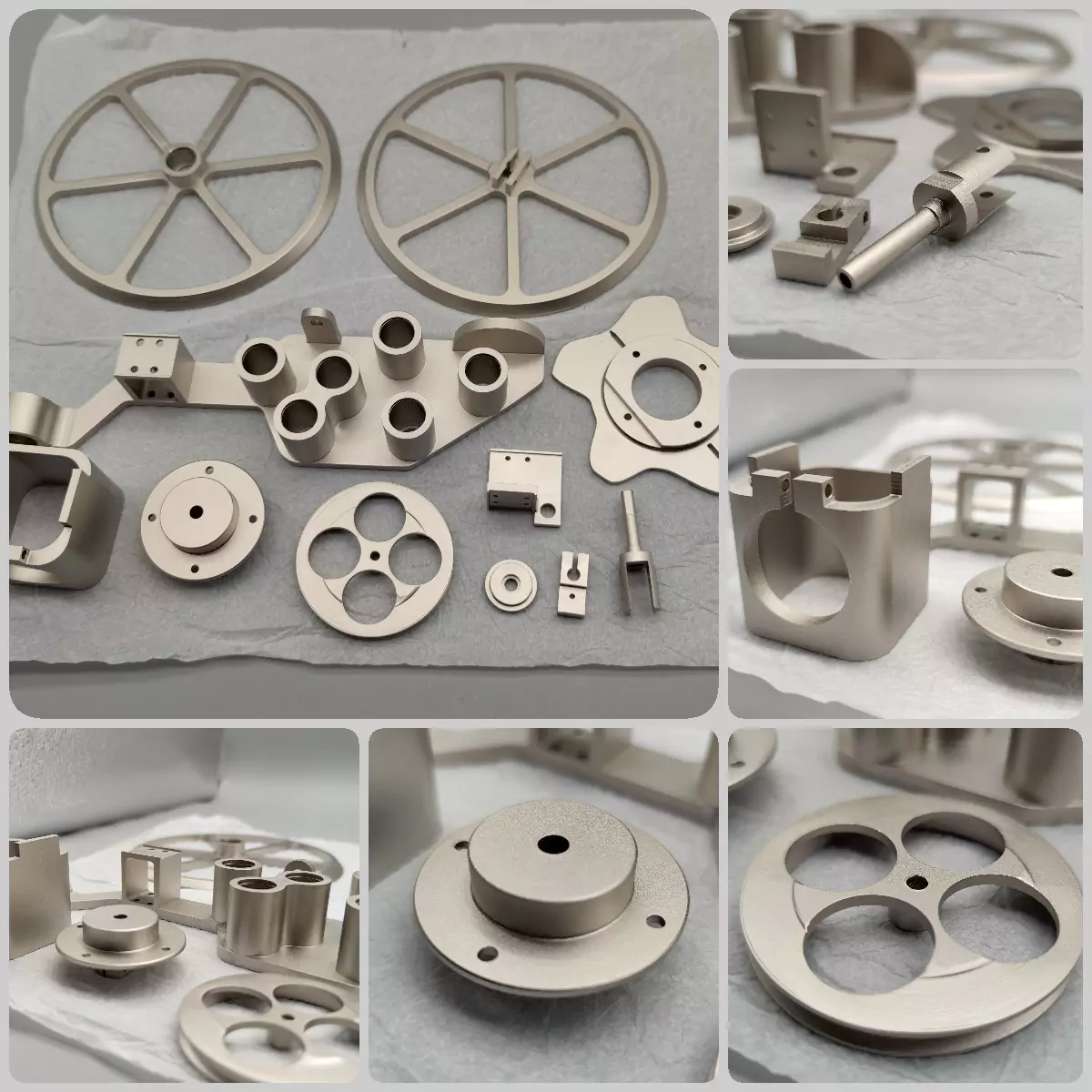
Nickel plating
9. ISO Certification
ISO certification is an international standard that measures a factory’s level of quality management.
Choosing a factory certified in ISO 9001, ISO 14001, etc., ensures it meets international production and management standards.
10. Customized Project Requirements
Different projects have unique needs. The right factory should adapt its processes and customize solutions accordingly.
For instance, some projects may require special accuracy or customized materials, and a flexible factory can offer tailored solutions.
Table 1 Key criteria for selecting the right CNC machining shop in China
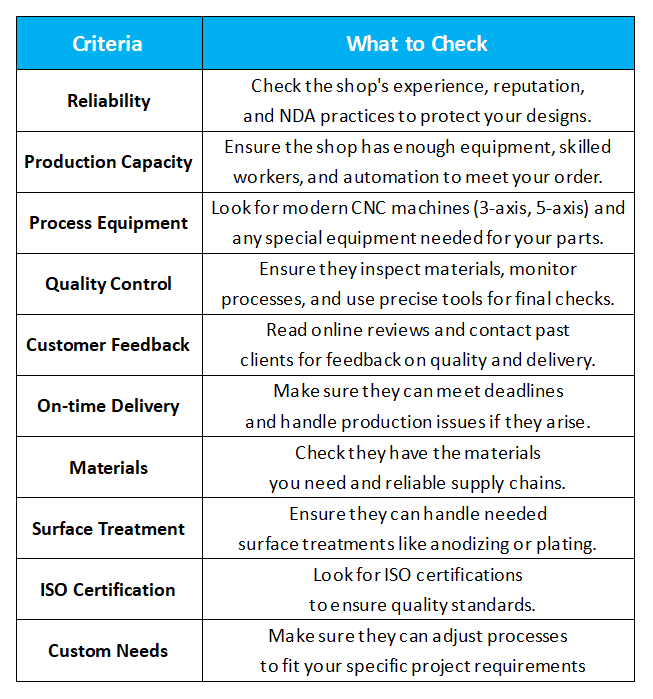
Other things to consider when ordering CNC machined parts from China
When sourcing CNC machined parts from China, several key factors must be considered to ensure a smooth and error-free process.
By analyzing them in detail below, you can better avoid potential risks and ensure your project moves forward as planned.
1. Transparent Communication
Transparent communication is essential to ensure your project meets expectations. Especially in multinational projects where communication barriers can lead to increased costs and time delays.
Therefore, the following points need to be addressed in terms of transparency in communication:
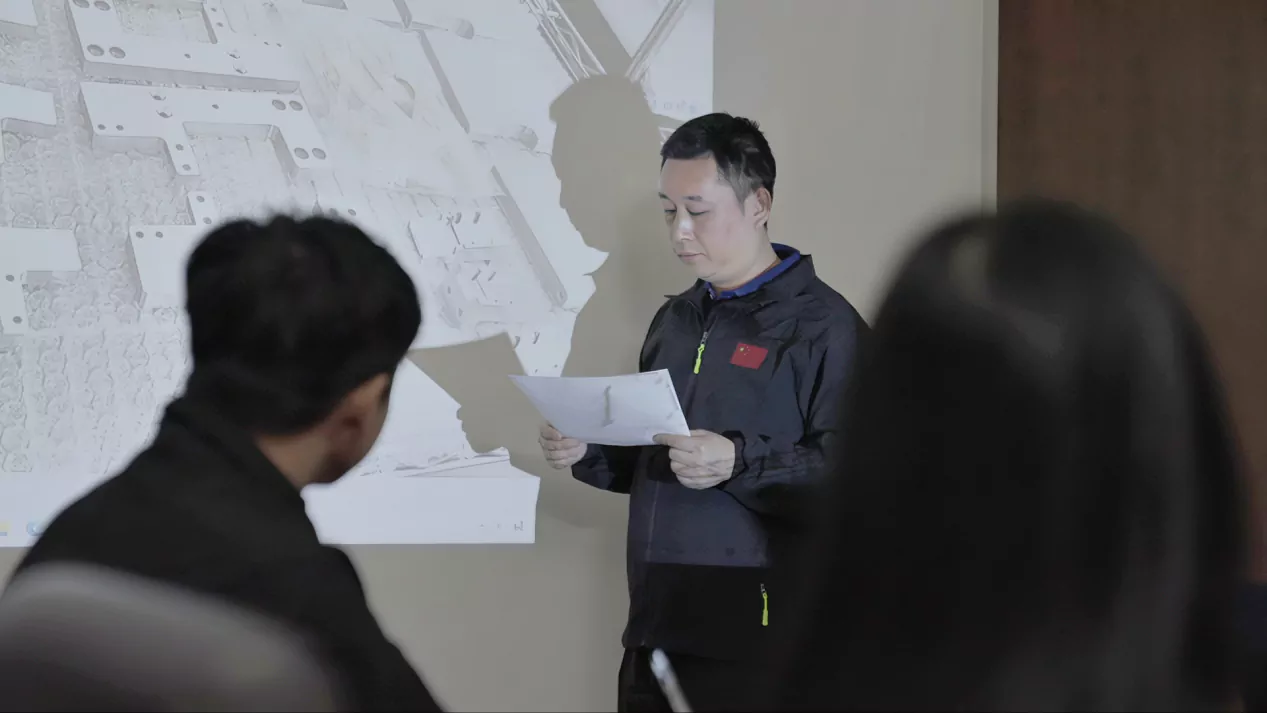
Clear articulation of project requirements
Before the project begins, ensure that all design needs and technical requirements.Such as dimensional tolerances, surface treatments, material selection, etc., are explained in detail to the factory.
It is best to provide detailed drawings and illustrative documents. You should also consider a preliminary video conference. This will help ensure that both parties understand the same thing.
Language communication ability
Working with a processing plant with some English communication ability is essential.
Professional fabricators usually have someone dedicated to communicating with overseas clients. This helps avoid misunderstandings caused by language barriers.
It is recommended to hire a project manager or translator. They should be familiar with both Chinese and English to ensure clear communication.
Regular reports on project progress
Many high-quality factories provide stage-by-stage progress reports. This is especially common for projects with long production cycles. Regular updates on project progress are critical.
For example, you can ask the factory for photos, inspection data, or videos of each stage as it is completed.
This allows you to remotely monitor the project’s progress and ensure compliance with design requirements.
Including this communication process in the contract can help reduce the risk of project delays.
Online meetings and real-time tracking
Use instant messaging tools like WeChat, WhatsApp, or Skype for real-time communication with the factory.
Many factories also support online production tracking systems. These systems allow customers to log in at any time and check the project’s progress.
This ensures that adjustments can be made promptly and potential problems can be identified.
2. Logistics and export experience
CNC processing plants in China can produce high-quality parts. However, ensuring that the parts are safe and undamaged during international transportation is another critical task.
Logistics and export experience play a key role in whether a machine shop can deliver products on time and safely to your location.
Here are a few specific areas to consider:
Choose a factory with export experience
Working with a factory with extensive international export experience ensures a smoother logistics process.
These factories are usually familiar with export regulations and customs procedures.
They can prepare the necessary documentation for customs clearance in advance. This includes commercial invoices, packing lists, certificates of origin, and more.
Doing so helps avoid delays in customs clearance due to documentation issues.
Professionalism in packaging and transportation methods
During international transportation, parts can be affected by shock, vibration, and environmental changes. Therefore, proper packaging methods are crucial.
You can ask the factory to use packaging materials suited to the product’s unique characteristics.
This could include anti-shock foam, wooden boxes, moisture-proof packaging, and more. These methods help prevent damage during transportation.
Additionally, ensure the factory can pack and arrange the products according to your specified mode of transportation (e.g., air, sea, or express).
Processing factories cooperating with professional logistics
Some large CNC processing factories cooperate with professional international logistics companies, like DHL and FedEx.
These companies offer reliable transportation and tracking services, allowing you to monitor the status of cargo in real time.
Professional logistics companies ensure on-time delivery and offer insurance services to minimize losses due to damage or loss.
Logistics cost and time assessment
Before placing an order, discuss logistics costs and estimated transportation time with the factory to include these in your budget.
Knowing the transportation time helps you plan your production and delivery schedule more effectively.
Choosing a factory with a fast logistics program can ensure quicker delivery when the project is urgent.
3. Clear contract terms
The clarity and detail of contract terms are essential in international cooperation.
Clear contract terms protect your interests and guarantee that the factory will complete the project on time and in good quality.
Below are some key points of contract terms:
Delivery time
Include a specific delivery date or timeframe in the contract.
You can negotiate with the factory to include a delay penalty clause in the agreement.
This means that if the factory fails to deliver on time, it will be liable for the corresponding liquidated damages.
This approach can effectively constrain the factory’s production schedule and reduce the likelihood of project delays.
Quality standards and acceptance criteria
The contract should clearly outline the quality requirements for the products, including dimensional tolerances, surface treatment, hardness, and strength.
You can require the factory to provide quality inspection reports and photos before shipment. Alternatively, you may designate a third-party testing company to conduct inspections.
If the products do not meet quality standards, the contract should specify whether the factory must re-produce the items or offer other compensation.
Intellectual Property Protection and Non-Disclosure Agreements (NDAs)
For projects involving patented designs or sensitive information, it is critical to sign NDAs.
The contract should prohibit the factory from disclosing or using project design drawings, technical data, and other information without authorization.
Many Chinese fabrication factories are experienced in IPR protection.But you should still ensure confidentiality clauses are detailed in your contract to safeguard your IPR.
After-sales support
Some projects may require follow-up technical support or services from the factory after delivery.
Ensure the factory’s after-sales support policy is clearly defined in the contract.
This should include whether the factory will provide free repair or replacement services if a quality issue is found within a specified period.
This will allow you to obtain protection after using the product and avoid potential losses.
Payment methods and terms
International transactions are usually paid in stages. The first stage is a deposit when signing the contract.
A portion of the cost is paid during the production process. The final payment is made before shipment.
Make sure the contract specifies the payment stage and amount.
It is recommended to use methods like letters of credit (L/C) or third-party payment platforms.
These methods can help minimize the risk of cross-border transactions.
Ruiyi’s Customized CNC Machining Services in China
Ruiyi is an experienced CNC machining service provider in China, offering a one-stop service from prototyping and precision machining to surface treatment.
Equipped with modern 5-axis CNC equipment, a comprehensive quality control system, and many successful customer cases.
Ruiyi’s technical team can customize production solutions to meet the needs of customers.
No matter how big or small the project is, Ruiyi’s technical team can customize production solutions.
They adjust to the customer’s needs. The team guarantees on-time delivery of quality finished products.
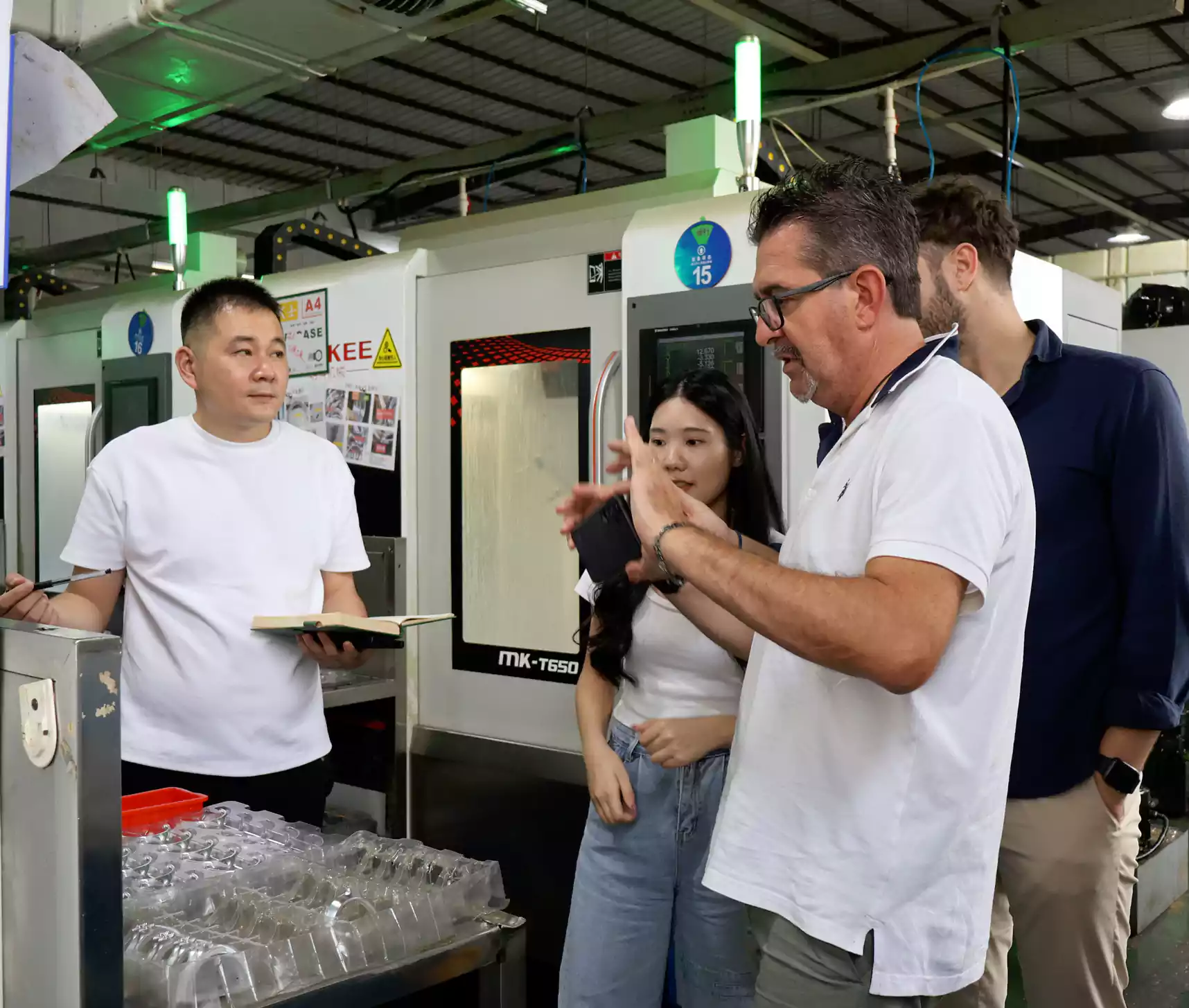
Conclusion
Choosing the right CNC machine shop in China can make your project more efficient and reliable.
The selection guide above allows you to fully consider the strengths and capabilities of different factories and find the partner that best meets your needs.
If you are looking for a CNC machine shop in China with the experience and technology to provide efficient, customized services for your project, Ruiyi is a trustworthy choice.

